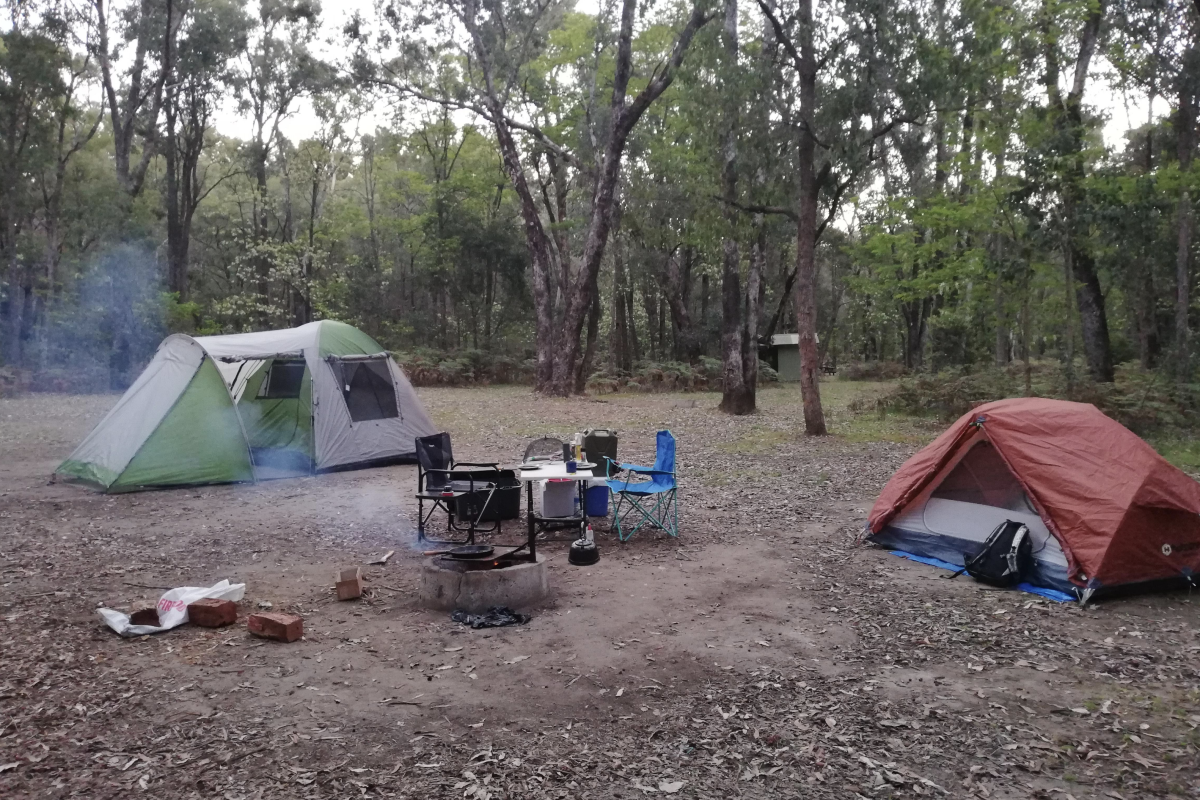About this campground
Nanga townsite started in 1901 and at one time included a store, a butcher’s shop, hall, billiard room, school, tennis courts and sports oval. The timber mill employed 100 men but the Great Depression took its toll on the once-flourishing township. The mill burnt down in a case of suspected arson in 1941 and, although rebuilt, the town never recovered its former glory. What was left of it was destroyed by fire in 1961, but the remains of the town can be seen among the trees.
There are a variety of campsites that are ideally suited to families and small groups but not suitable for caravans, camper trailers and other larger vehicles.
Campfires are usually permitted, in the fire rings provided, but fire restrictions may be imposed at any time and without notice. Bring your own firewood. When fire restrictions are in place campfires must not be lit and any appliance powered by burning solid fuel must not be used.
Campers´ own liquid or gas fuel barbecues, stoves and heaters can be used at any time, unless a total fire ban has been declared.
The campground is very popular during school holidays and weekends from October to April, particularly public holiday weekends. Be prepared with an alternative place to stay at these times in case there is no suitable site available.
Bookings cannot be made for Nanga Townsite, it's first in, first served. Always have back-up accommodation just in case.
The Nanga Brook Walk Trail follows the brook from Nanga Mill to Nanga Townsite. Expect some steps and short steep sections.
- Distance: 4 km return
- Class 3
- Time: Allow 1.5 hours
Safety information
Plan when to visit. Read this safety information about bushwalking. Consider traveling with a personal location beacon (PLB). In the event you need to be rescued it could save your life!
Western Shield - The Department of Biodiversity, Conservation and Attractions undertakes 1080 baiting at this location to reduce the impacts of feral cats and foxes on native wildlife.
Meat baits containing 1080 poison are laid in or around this area on an ongoing basis. 1080 is poisonous to humans and will kill domestic cats and dogs. Pets are permitted in some recreation areas of Lane Poole Reserve but must be kept in control and on a leash at all times.
For further information contact your local Parks and Wildlife Service office or visit Western Shield.
Gallery

Facilities
Toilet
Picnic table
Fire ring
Activities
 Bushwalking
Bushwalking
 Camping
Camping
 Mountain biking
Mountain biking
 Swimming
Swimming
Plants, wildlife and fungi
Visit the Atlas of Living Australia for a list of species recorded within a 5km radius of Nanga Townsite Campground.
Traditional Owners
We recognise and acknowledge Aboriginal people as the traditional owners of Lane Poole Reserve.